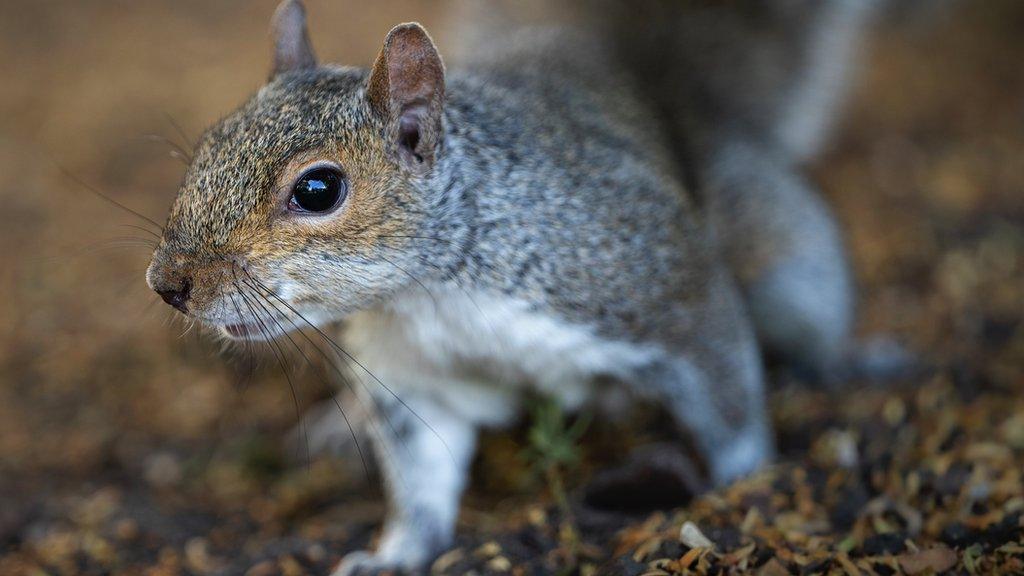Red squirrel group sees 'invasion' of greys
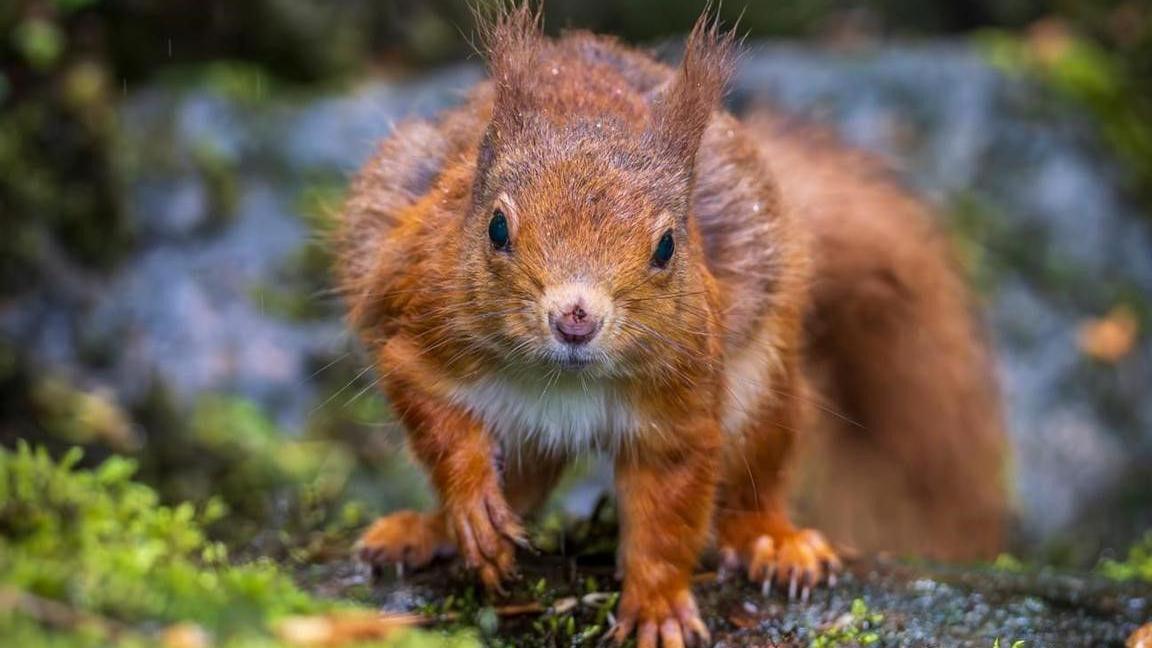
Red squirrels are native to England
- Published
One of the biggest red squirrel protection groups in England says it is facing an "invasion" of greys.
The larger grey squirrel is classified as an invasive non-native species and has contributed to the decline of native reds.
Penrith and District Red Squirrel Group (P&DRSG), which covers 400 sq miles (1,036 sq km) of Cumbria, was set up 40 years ago when the first grey was spotted there.
Founder Robert Benson said: "The last 18 months we have seen a huge increase in their numbers. Unless something changes soon, the reds will disappear from England."
It is not illegal to kill grey squirrels, which are originally from North America, and it is a criminal offence to release them from traps.
It carries - but is not affected by - a pox, which causes red squirrels to die slowly and painfully.
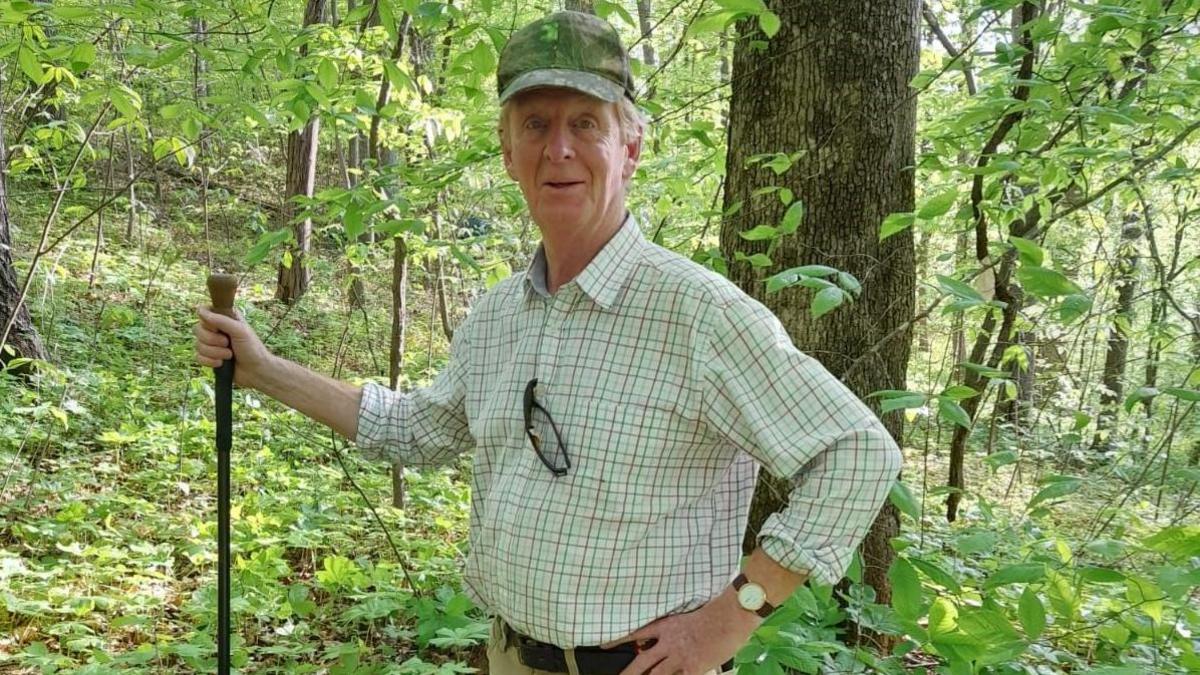
Robert Benson founded the Penrith Red Squirrel Group 40 years ago
"We think they are probably breeding in Cumbria all year round because of the milder weather," Mr Benson said.
"We are certainly seeing pregnant and lactating grey squirrels in the winter months."
Mike Denbury, the project manager for Red Squirrels Northern England, run by Northumberland Wildlife Trust, said the experiences of P&DRSG was "one I'm hearing everywhere".
"We've had a couple of years when trees produce a lot of seed with a lot of food around for grey squirrels who like broad leaf species like hazelnut and beech.
"We're definitely seeing grey squirrels breeding all year round."
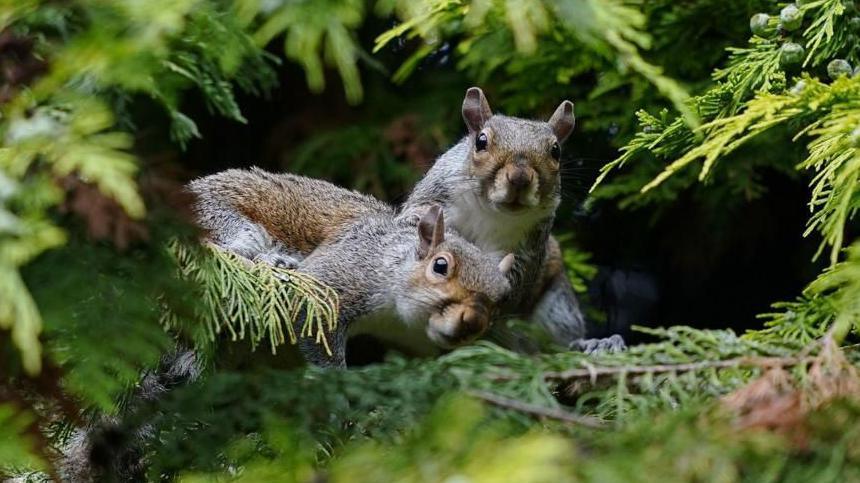
Grey squirrels, native to North America, carry a pox which is deadly to red squirrels
There are 47 groups across Northumberland and Cumbria all working to protect red squirrels.
"Frankly without their work, the red squirrel would have no future in England," Mr Denbury said.
"What we need is a more permanent solution, like gene editing, or contraception, or a vaccine against the pox which only affects the red.
"If it doesn't happen soon, we're going to lose the red squirrel from not just England but Scotland too in time."
Follow BBC Cumbria on X, external, Facebook, external, Nextdoor, external and Instagram, external. Send your story ideas to northeastandcumbria@bbc.co.uk.
More stories from BBC North East and Cumbria
- Published25 October 2024
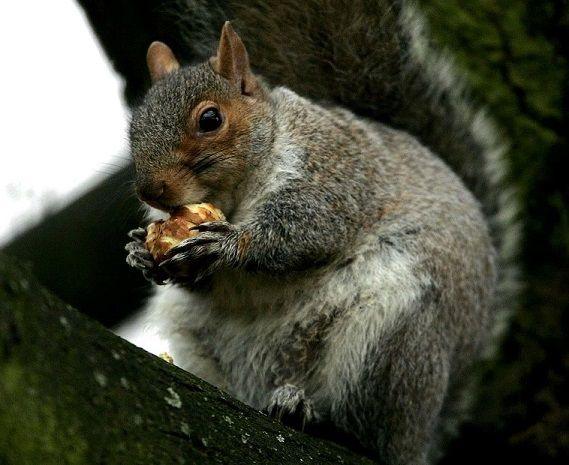
- Published25 April 2024
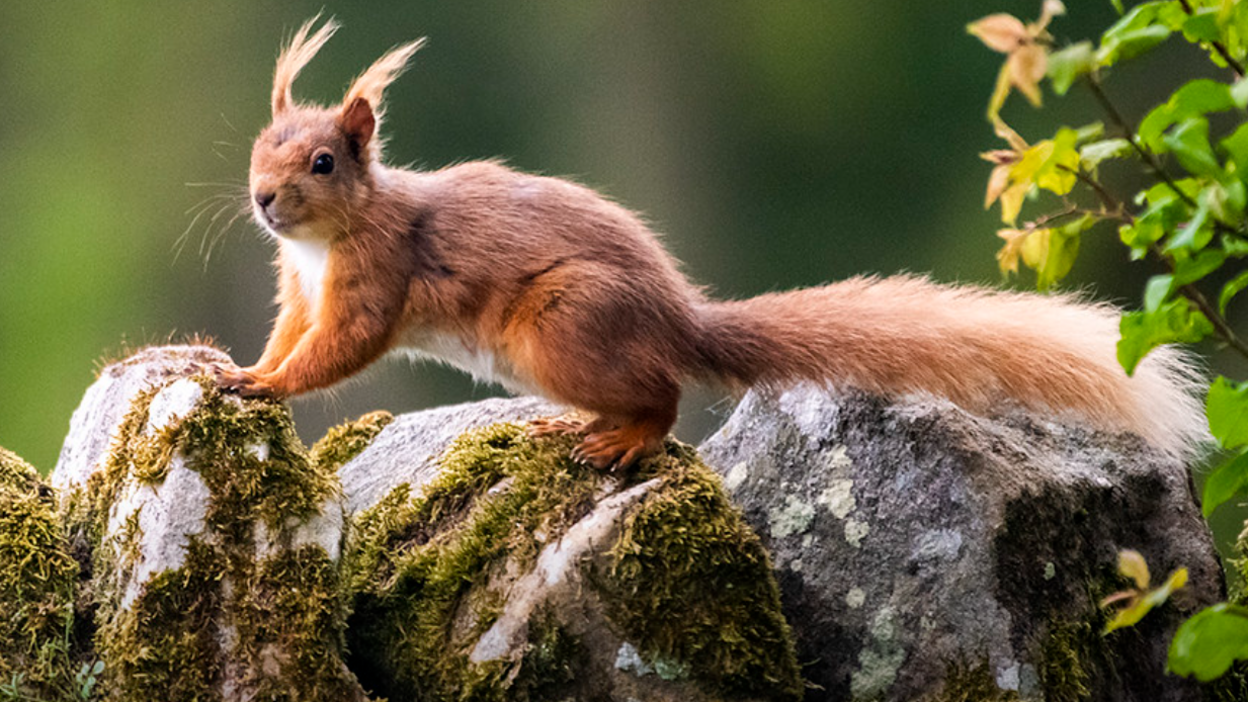
- Published11 July 2022
